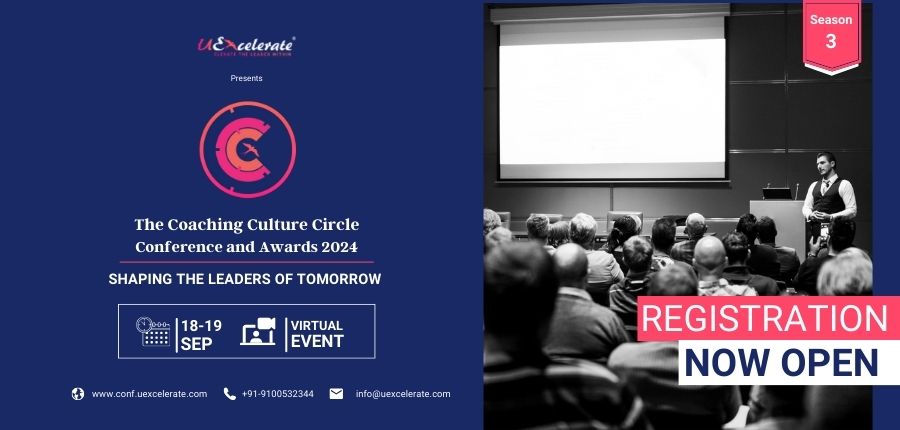In today’s dynamic business landscape, organizations are constantly seeking ways to enhance employee performance, encourage leadership development, and promote a culture of continuous learning. One of the powerful strategies that have gained momentum in recent years is the implementation of a coaching culture. However, this transition is not without its challenges.
What is coaching?
Coaching goes beyond traditional training methods by focusing on individualized support and development. It involves a collaborative partnership between a coach and a coachee, aimed at unlocking potential, improving performance, and achieving specific goals. Unlike mentoring or teaching, coaching emphasizes asking thought-provoking questions, active listening, and providing feedback to facilitate self-discovery and growth.
Why is coaching the need of the hour?
The rapidly evolving business landscape demands agile and adaptable teams. Coaching equips employees with the skills to navigate challenges, embrace change, and thrive in diverse environments. It promotes a growth mindset, enhances problem-solving abilities, and cultivates a sense of ownership and accountability among individuals. In today’s competitive market, organizations that prioritize coaching gain a strategic edge by nurturing talent and fostering innovation.
Agile and Adaptable Teams:
With markets changing at an unprecedented rate, businesses require teams that can pivot quickly, respond to challenges, and capitalize on emerging opportunities. Coaching provides employees with the tools and mindset to adapt, learn from failures, and continuously improve.
Overcoming Challenges:
In a volatile business environment, unexpected challenges are the norm rather than the exception. Coaching helps individuals develop resilience, problem-solving skills, and the ability to think creatively under pressure. This equips them to navigate obstacles effectively and find innovative solutions.
Embracing Change:
Change is inevitable in today’s world, whether it’s technological advancements, industry disruptions, or shifts in consumer preferences. Coaching instills a mindset that embraces change as an opportunity for growth and learning rather than a threat, enabling teams to stay ahead of the curve.
Encouraging a Growth Mindset:
A growth mindset is essential for personal and professional development. Coaching encourages individuals to embrace challenges, learn from feedback, and continuously improve their skills and knowledge. This mindset not only drives individual success but also contributes to the overall growth of the organization.
Enhancing Problem-Solving Abilities:
Effective problem-solving is a critical skill in today’s complex business landscape. Coaching helps individuals develop analytical thinking, creativity, and the ability to approach problems from different perspectives. This leads to more innovative solutions and better outcomes for the organization.
Cultivating Ownership and Accountability:
In a coaching culture, individuals take ownership of their roles, projects, and contributions. They feel accountable for their actions and decisions, leading to increased motivation, productivity, and quality of work.
Strategic Edge and Innovation:
Organizations that prioritize coaching create a competitive advantage by nurturing talent, empowering employees, and fostering a culture of innovation. Coaching encourages individuals to think outside the box, challenge the status quo, and contribute ideas that drive business growth and success.
In summary, coaching is the need of the hour because it equips teams and individuals with the skills, mindset, and capabilities required to thrive in today’s dynamic and competitive business landscape. It promotes agility, innovation, accountability, and continuous learning, positioning organizations for long-term success and sustainability.
What is coaching culture?
A coaching culture is a mindset and set of behaviors ingrained within an organization, where coaching is not just a tool but a fundamental aspect of how work is approached. It involves leaders and managers embodying coaching principles, employees embracing a learning mindset, and a supportive environment that encourages continuous feedback, reflection, and development. A strong coaching culture fosters trust, collaboration, and a shared commitment to individual and organizational growth.

Challenges faced by organizations in rolling out coaching culture:
Despite the myriad benefits, implementing a coaching culture presents several challenges for organizations:
- Resistance to change: Some employees may resist adopting coaching practices due to fear of failure, skepticism, or a preference for traditional hierarchical structures.
- Lack of clarity and alignment: Unclear expectations, inconsistent messaging, and a lack of alignment between leadership and employees can hinder the adoption of coaching culture.
- Limited resources and expertise: Organizations may face challenges in providing adequate training, resources, and ongoing support to develop coaching skills among leaders and employees.
- Cultural barriers: Organizational cultures that prioritize hierarchy, control, or quick-fix solutions may struggle to embrace the collaborative and empowering nature of coaching.
- Measurement and accountability: Establishing metrics, evaluating the impact of coaching initiatives, and holding individuals accountable for coaching outcomes can be challenging without robust systems in place.
Overcoming challenges in implementing coaching culture within organizations:
To overcome these challenges and successfully embed a coaching culture, organizations can take proactive steps:
- Leadership commitment and alignment: Engage leaders at all levels to champion coaching initiatives, communicate the vision, and lead by example in practicing coaching behaviors.
- Comprehensive training and support: Invest in training programs, workshops, and coaching certifications to equip leaders, managers, and employees with essential coaching skills and tools.
- Clear expectations and communication: Set clear expectations, goals, and outcomes for coaching initiatives, communicate the benefits, and create a shared understanding of the role of coaching in driving organizational success.
- Foster a learning culture: Create a safe and supportive environment that encourages continuous learning, feedback, and experimentation. Celebrate successes and learn from failures to reinforce a growth mindset.
- Integrate coaching into performance management: Align coaching efforts with performance management systems, establish regular feedback loops, and recognize and reward coaching behaviors and achievements.
- Measure impact and iterate: Develop metrics to assess the impact of coaching on individual and organizational outcomes, gather feedback, and continuously refine coaching strategies based on data and insights.
Organizations can cultivate a vibrant coaching culture by addressing challenges head-on and adopting a strategic approach. This encourages talent development, enhances employee engagement, and drives sustainable success in today’s dynamic business landscape.
Conclusion
In conclusion, building a coaching culture is not without its challenges, but the rewards in terms of employee engagement, performance improvement, and organizational resilience are well worth the effort. By addressing resistance, investing in development, aligning with strategic goals, nurturing a learning culture, measuring progress, leading by example, and celebrating successes, organizations can overcome obstacles and create a thriving coaching culture that drives sustainable growth and success.






